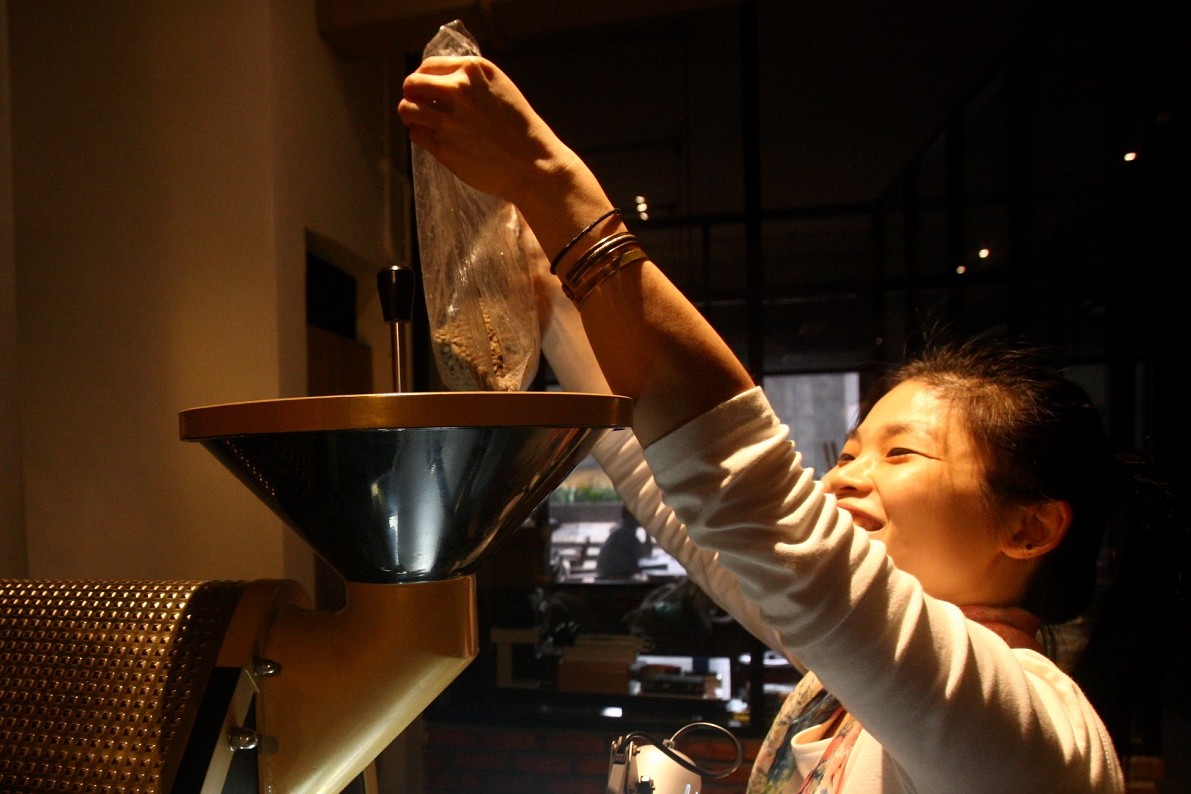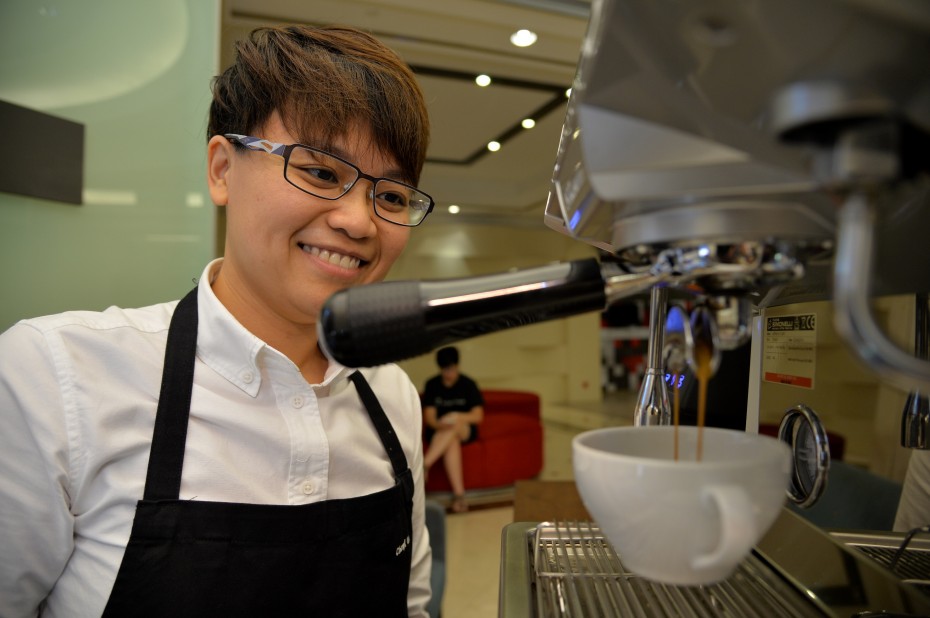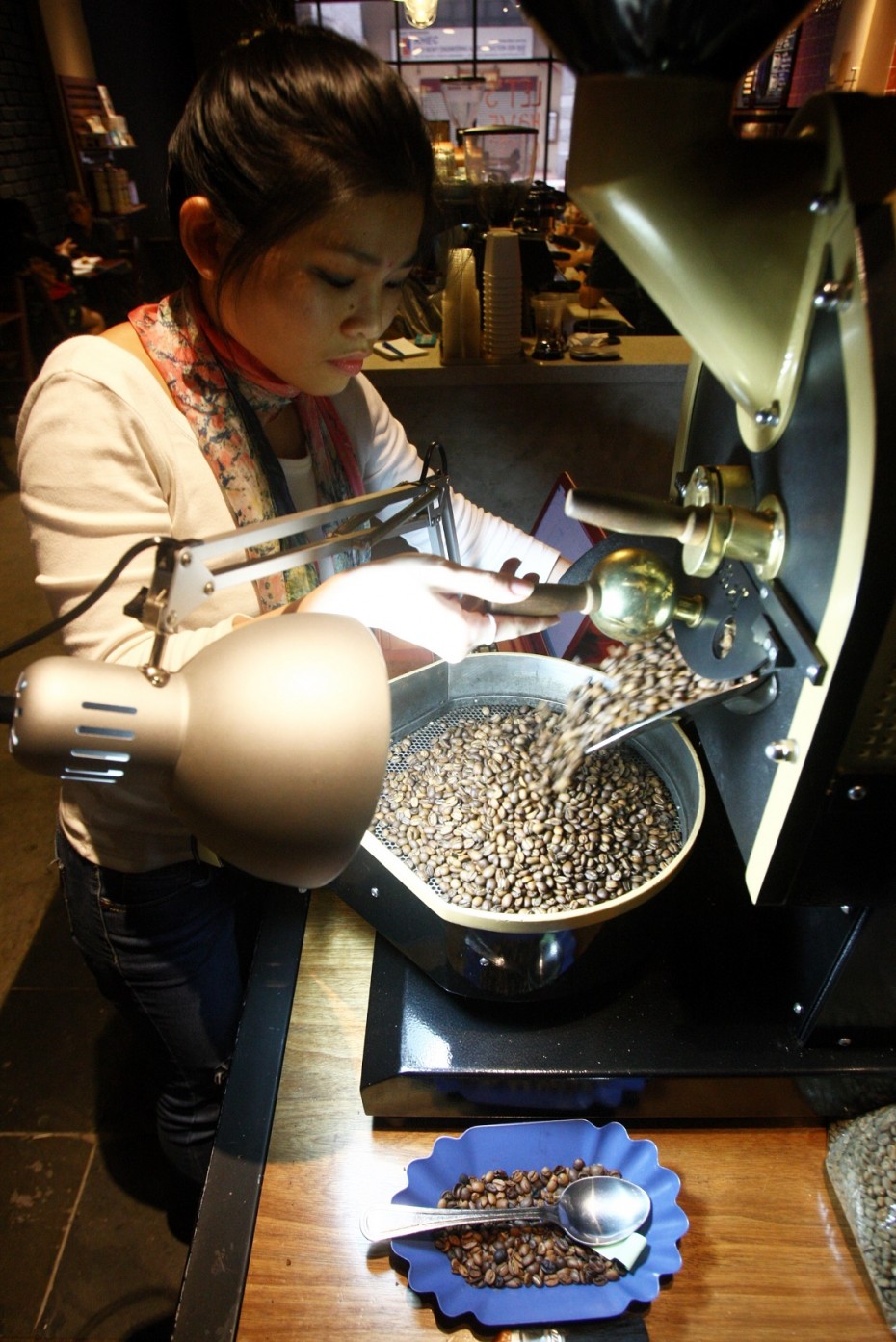Interested in a caffeine-related job? Well, your choices are plentiful. Here are a few options:
Barista
This is an entry point to a coffee career and involves preparing and serving espresso-based coffee drinks. A three-day barista course costs about RM2,000, but some coffee outlets like The Grumpy Cyclist or Artisan will train their own baristas. “We have a specific taste we want for our coffee, so we train our own baristas so they can reproduce it,” shared Chew.
Roaster
In Malaysia, baristas generally get promoted to roasters. Roasters have to discern the potential flavour of each bean before the barista brews it, and study elements like altitude and processing techniques to understand the beans better.
Roasters play a crucial role in achieving the desired flavour from the beans, using flavour profiling to determine the temperature and length of time the beans should roast at to achieve full flavour potential.
Bean sourcer
Sourcers travel to coffee farms around the world and speak directly to the farmers about the type of flavour they would like to get from the beans. This is a huge responsibility, so those who do the sourcing should get a “cupping” certification, said Daniel Liew, the academic director of Baristas Guild Asia (BGA). This certifies that the person in question understands the flavour profiles of coffee beans and can objectively valuate the different grades of beans. There are two separate certifications: “Q” for Arabica beans and “R” for Robusta beans.
Cafe owner/manager
After gaining enough experience about the daily operations of a cafe, it is possible to become a cafe manager or even own your own cafe.
“It would be best to start out as a barista first, then start a cafe,” said Gerald Goh, who owns Grab, a cafe in Bangsar, Kuala Lumpur.
Before starting his cafe, he worked for Starbucks as a supervisor. “You need first-hand experience before you can start a business,” he said.
“A lot of successful baristas are now running their own cafes or work as part of a team in general F&B or in coffee distribution management,” added Liew “Those who have good leadership skills along with a love of coffee could even end up heading a team.”
Technical specialist
On the technological end of things, there is always a demand for people who can repair and maintain coffee equipment. Technicians are trained by the companies that supply the machines, but there is no official certification. While it is considered a blue-collar job, technicians can become trainers themselves, teaching people how to repair and maintain coffee machines. As many of the machines are imported, there are opportunities for technicians to travel overseas!
Barista trainer
If your passion is evenly split between coffee and teaching, Liew says training might just be your cup of coffee. Trainers will need to be qualified baristas (BGA Level 1), have plenty of behind-the-bar experience, and be very knowledgeable. “There is a large demand for trainers as there are coffee places everywhere and not enough good baristas in the market,” he said.









Leave a reply